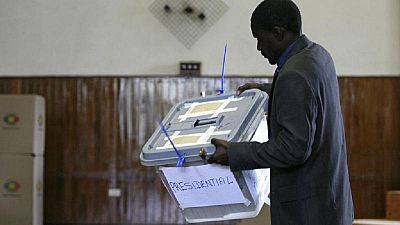Africa
A week ago today, Africa was bracing up for a loaded political day, with six elections slated on the same day (March 20) on different parts of the continent.
There were two runoff polls, there was an elections rerun in Tanzania and then a referendum meant to among others reduce a presidential term and adopt other political reforms.
West Africa was at the center of what was referred to as ‘Africa’s Super Sunday,’ Niger and Benin were having poll runoffs, parliamentary elections in Cape Verde Islands and Senegal’s referendum were on the cards.
Central Africa had a portion to play with a scheduled presidential election in Congo Brazaville, where the incumbent Denis Sassou Nguesso was looking to extend his over three decades rule. The Zanzibar (Tanzania) election rerun was East Africa’s bit part rôle.
Six African countries vote in Super Sundayhttps://t.co/UsHzBM9DE9
— Daily Trust (@daily_trust) March 21, 2016
African Elections – Where next?
Next, the electoral automobile would stop in the Horn of Africa’s Djibouti would be holding presidential polls on April 8 and Idris Deby’s Chad would also follow with elections, two days later on April 10.
But beyond those, Ghana and Gabon (General elections, with both John Mahama and Ali Bongo Ondimba seeking second terms) Gambia, (Jammeh seeking fifth term in office) Zambia’s Edgar Lungu would also be seeking a scond term whiles Rwanda’s Paul Kagame also seeks extension of mandate.
Electoral violence – A thing of the past?
All these polls with their unique dynamics were conducted and ended peacefully, a plus for African democracy. Could it then be safe to state that Africa is gradually drifting from electoral violence?
Reports indicated that all of the March 20 polls were peaceful across board, except for the tense atmosphere that was recorded in Congo Brazaville, where there was virtually a shutdown on the day of the elections.
A communications blackout (internet and phone services) only deepened the tension at least given the deadly nature of the October 2015 referendum that okayed Nguesso’s rule of extension by the ballot box.
Of all the post election reviews, the only tense feedback has been by Congolese candidate and former security chief General Jean Marie Michel Mokoko, who denounced Nguesso’s victory and called for a popular uprising in the Central African country.
Congo opposition candidate General Mokoko calling for a popular uprising https://t.co/ZvplVg0T3G pic.twitter.com/aECbdnl7nq
— africanews (@africanews) March 24, 2016
Feather in the cap of Benin and Zinsou
In the two poll runoffs, the Niger case was pretty straightforward, all indicators showed that the incumbent president was going to win the poll. Mahammadou Issoufou went into a runoff that the opposition had boycotted.
The Beninese situation was quite different, the Prime Minister, Lionel Zinsou; the preferred candidate by the ruling party was in a strong position and only a yet he conceded defeat so early on.
Zinsou called to congratulate Patrice Talon, a local businessman; soon after results started coming in after the elections. Zinsou somewhat had followed the footsteps of erstwhile Nigerian leader Goodluck Jonathan who called President Buhari after last polls in Nigeria last year.
Benin elections: Zinsou admits defeat and congratulates Talon https://t.co/rMpAIUJctA pic.twitter.com/tmYL4SvIap
— africanews (@africanews) March 21, 2016
Talon, popularly referred to as the ‘King of Cotton’ shall be sworn into office on April 6.
‘YES’ to Sall’s political reforms
Macky Sall, the Senegalese President also scored a ‘‘YES’‘ with his referendum and general political reforms even though the opposition still hold their skepticisms about the President’s move to slash presidential term limits.
#Proud2bAfrican: People in #Senegal have voted to cut presidential mandates from 7 to 5 years https://t.co/cwHSx2RZNC
— simon INOU (@simoninou) March 26, 2016
Meanwhile, Cape Verde’s opposition were victorious in the parliamentary polls and the Zanzibar elections was also won by the incumbent as was widely expected.














01:09
Guinea presents draft for new constitution, referendum set for September
Go to video
Paraguayan town celebrates vibrant Kamba Ra'anga festival with masks, fire and tradition
01:47
Chinese city of Xuchang is world's biggest producer of wigs
01:15
U.S. considers adding more African countries to travel ban
01:00
Renewed calls to end plastic pollution on World Environment Day
00:52
Bill Gates says most of his $200 billion fortune will go to Africa over next 20 years